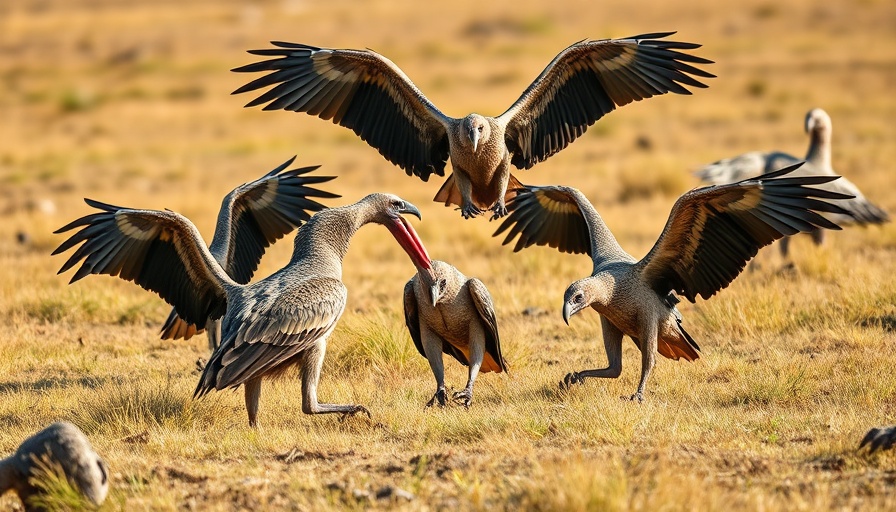
The Economic Impact of Vultures in Southern Africa
A significant report released by BirdLife International reveals that vultures in Southern Africa provide an astonishing economic value of approximately $1.8 billion annually through ecosystem services. This economic contribution encompasses essential functions such as sanitation by scavenging on decaying carcasses, pest control, and bequest values. Focusing on Botswana, Zimbabwe, and Zambia, the findings shine a spotlight on the vital yet often overlooked role of vultures in maintaining ecological balance and public health.
The Extinction Threat to Vulture Populations
Vultures are facing alarming declines with population crashes of 80-97% over the past fifty years, driven primarily by human-induced threats. Seven out of the eleven vulture species in Africa are classified as Vulnerable, Endangered, or Critically Endangered according to the IUCN Red List. The leading causes of these declines include poisoning (responsible for 61% of recorded deaths), belief-based use (29%), and electrocution from energy infrastructure (9%). For instance, a mass poisoning event in Botswana claimed over 500 vultures, underlining the urgency for conservation actions.
Welfare and Economic Loss
The report emphasizes the stark contrast between the welfare losses associated with failing to conserve vultures—estimated at approximately $47 million per year—and the potential welfare gains from successful conservation strategies, which could yield around $30 million annually. The ecological services vultures render not only safeguard ecosystems but also contribute significantly to rural economies.
Vultures and Local Communities: A Symbiotic Relationship
Understanding the relationship between local communities and vultures is crucial. The report underscores the value communities place on vultures by linking their presence to tourism activities and local cultural practices. Awareness efforts led by advocates such as BirdLife Zimbabwe highlight how conservation of vultures can enhance ecosystem health and promote social well-being.
Building Collaborative Conservation Strategies
As reiterated by Matthew Lewis, Head of Conservation, Africa at BirdLife International, collaborative efforts with local stakeholders are imperative. This report serves as a crucial step in promoting policy advocacy aimed at conserving vultures. By integrating these findings into national conservation strategies, it is possible to mitigate the threats posed by illegal trade, habitat loss, and poisoning, ultimately ensuring a more sustainable future for these critical scavengers.
The Role of Advocacy in Vulture Conservation
Professionals in conservation must leverage this report to enhance awareness and drive action for vulture protection. A collaborative approach combining insights from academia, civil society, and government is vital in fostering understanding and appreciation of vultures among local populations. Such unified efforts could be instrumental in reversing vulture declines and maximizing their ecological and economic contributions.
Looking Ahead: The Path for Vulture Conservation
The importance of vultures in ecosystem dynamics cannot be overstated. As custodians of sanitation, they control disease propagation and contribute significantly to biodiversity. Ensuring the survival of these birds requires innovative strategies and community involvement. Future conservation efforts should leverage technological advancements in digital advocacy, data analytics for monitoring population changes, and education around the health and economic benefits of vultures. Ultimately, an informed and unified approach can pave the way for reviving vulture populations across Southern Africa.
In light of the pressing need to safeguard vultures and recognize their economic value, it is essential to act now. Explore how your organization could contribute to vulture conservation efforts or take steps towards fostering awareness within your community.
 Add Row
Add Row  Add
Add 


Write A Comment